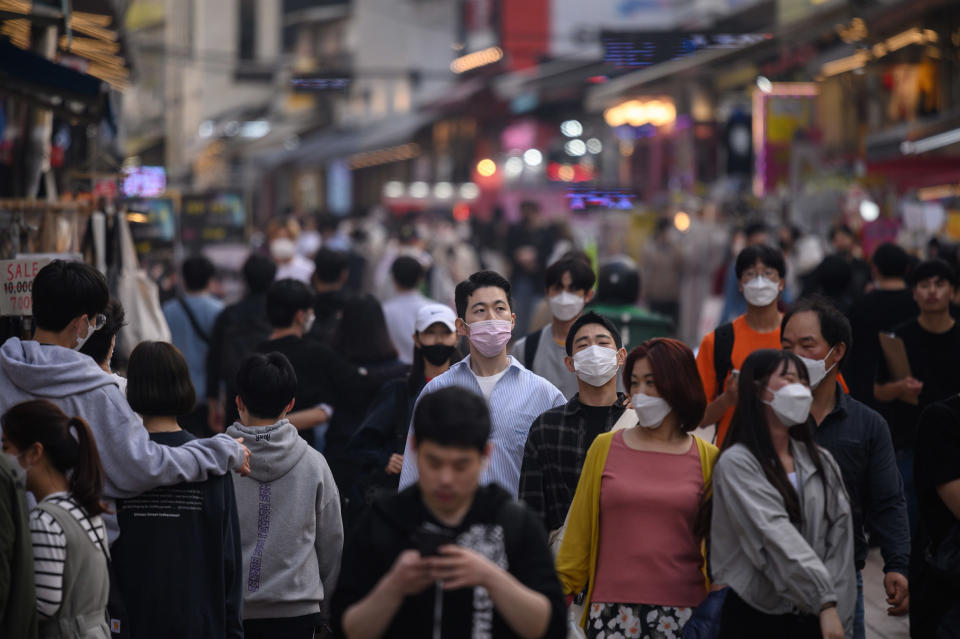New COVID-19 infections in China, South Korea raise alarm over second wave
China and South Korea reimposed lockdowns Monday after a spike in new infections of the coronavirus raised concerns of a second wave of the pandemic.
At least 15 cases of the virus have been confirmed in Shulan, China, prompting officials to quarantine 290 people, enforce martial law and lock down the northeastern city.
The Jilin provincial government declared the city at high risk for the spread of the epidemic Sunday. Trains and vehicles, except those used by emergency rescuers, have been barred from entering the city.
Residents must stay at home, according to a report in the state newspaper Capital News. Households can elect one person to go out to buy essential goods, like groceries.
High school students who were recently allowed to return to the classroom are once again taking their courses online. Public service and entertainment venues, such as sports centers and libraries, have been temporarily closed. Generally, restaurants are permitted only to provide takeout.
Full coverage of the coronavirus outbreak
The first case of the new outbreak, which was detected Friday, involved a 45-year-old woman who is a laundry worker for a city's public security bureau, Jilin health authorities said. Eighteen of her close contacts were required to isolate.
While contact tracing is underway in Shulan, life is making the slow return to normal elsewhere in the country.
In Shanghai, Disneyland began to reopen Monday with enhanced health and safety measures. The park is limiting the number of people allowed to enter; enforcing social distancing in lines, restaurants and ride vehicles; and frequently sanitizing and disinfecting facilities, park operators said in a statement.
Nationwide, China reported 17 new cases Sunday and no deaths. The total number of people infected in the country since the outbreak began in December has reached 82,918, with 4,633 deaths.

Meanwhile, South Korea, which eased social distancing requirements last week, recorded a spike in cases linked to nightclubs in Seoul. But authorities cautioned that it did not suggest that a second wave of the pandemic was beginning.
"The first wave has not ended and had a break to start another pandemic," Jung Eun-Kyeong, director-general of South Korea's Centers for Disease Control and Prevention, told NBC News during a briefing Monday.
Still, she said, the medical community is continuing preparations for a second wave of the virus in autumn or winter by reserving enough equipment and encouraging social distancing and other preventive measures.
Bars and clubs have been temporarily closed in Seoul in response to the new outbreak, which has been traced to one confirmed patient who visited a slew of establishments. People who had visited bars in the popular nightclub district Itaewon have been asked to self-isolate for 14 days, regardless of whether they show symptoms, and to be tested.
Download the NBC News app for full coverage and alerts about the coronavirus outbreak
President Moon Jae-in said it was a reminder that even though the spread of the virus has been controlled, it can re-emerge at any time, especially around enclosed, crowded spaces.
"It's not over until it's over. While keeping enhanced alertness until the end, we must never lower our guard regarding epidemic prevention," he said at a briefing Sunday.
Across the country, 35 new cases were reported Monday, bringing the total since the beginning of the outbreak to 10,909. Of those patients, 9,632 have recovered. The death toll has remained steady at 256 since Friday.

